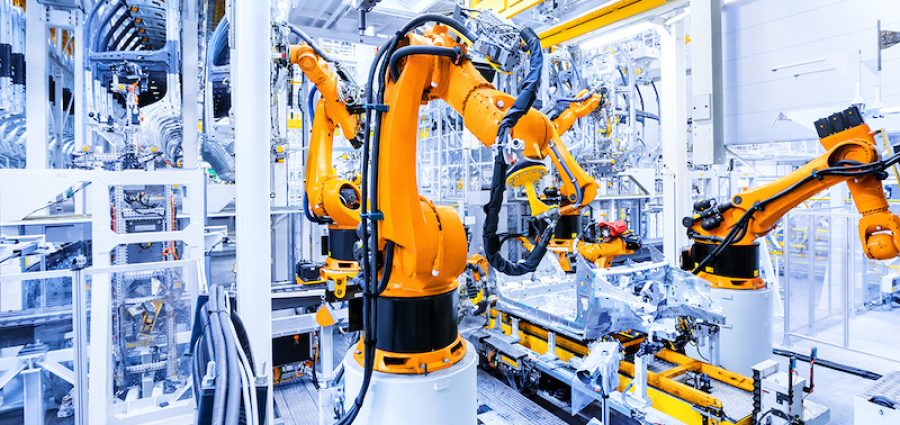Someone who’s not happy with a company’s customer service is likely to look elsewhere for a particular product or service. That’s true for something as simple and inexpensive as fast food — and it’s certainly true for the complex and costly needs related to wholesale distribution.
In fact, 96% of people say customer service is a key differentiator for them and they would seek products from a competitor if the first choice didn’t meet their demands, according to a recent survey from cloud-based solutions provider Esker.
That was the message from Jason Anderson and Chris Graves in the recent MDM Webcast, “Order-to-Cash Excellence: Why Automation Should Be on Every Distributor’s To-Do List.”
Anderson, the company’s business development manager, and Graves, the senior business alliance manager, outlined the ways that distributors can enhance customer service for their customers by adding such digital transformation tools as automated order-to-cash (O2C) and artificial intelligence.
By adding these solutions, a distributor can ensure accuracy with orders, invoicing, payment, shipping notifications and everything else involved in the procurement process.
“American businesses lose more than $75 billion annually due to poor customer service,” Anderson said on the webcast, hosted by John Gunderson, VP of MDM Analytics and e-business. “A truly advanced AI-driven solution can enhance the customer experience and not disrupt it.”
Processing orders can be costly for a company. Esker estimates that manually processed orders — through email, fax, phone or even EDI in some cases — run between $10 and $16.50 apiece. What’s more, manually processed orders result in human error, whether that means a customer service representative not being able to find an order in the system or not being able to provide any insight into when a product will be shipped or delivered.
In the age of Amazon, this is a real problem for distributors, Anderson says.
“As consumers, we’re used to that Amazon or online marketplace when we order products,” he says. “We place the orders online, or through an app, and we get confirmations and updates on the shipment very quickly. That’s the business-to-consumer (B2C) model, though. When we’re referring to the business-to-business (B2B) world, things are a little bit different. Orders can come in through many different channels and in many different formats.”
But an automated O2C system, such as what Esker and others offer, can alleviate both the added cost and the numerous exceptions that can arise when orders are handled by a human instead of technology.
“Human error is the biggest cause of data inaccuracies, according to 49% of the organizations that Experian surveyed in a benchmark study report,” Anderson says.
Sales Reps Also at Disadvantage
The disconnect doesn’t occur only when a customer orders direct from a distributor. When field sales reps take orders from customers they’re visiting in the field, they too are saddled with an inefficient manner of inputting those orders.
“They may have to go back home and key an order into a spreadsheet or upload it after they leave the store,” Anderson says. “It’s inefficient for people out in the field. And then once the order comes in, the CSR typically keys it into the system for the order to be created. That’s where potential errors with data entry can come into play. Also, by keying in that order, CSRs don’t have the same amount of time that they would to talk to customers and build relationships and answer questions. The paper-based order process — whether it’s email or fax or EDI — has very little visibility and control.”
All of which speaks to bringing on a system like Esker’s cloud-based platform that allows businesses to:
- Improve global speed and accuracy thanks to AI-powered data extraction technology;
- Gain a 360-degree view over customer behaviors — from orders and invoices to payments or claims;
- Offset the “Amazon effect” by freeing up staff for customer upselling and relationship-building;
- Consistently meet customer SLAs by addressing costly manual bottlenecks in the O2C cycle.
By improving collections and reducing day sales outstanding (DSO), a distributor can maintain cash flow and the company’s management and finance teams won’t have something else to worry about during the ongoing pandemic or any other business disruption.
“In today’s climate,” Anderson says, “being able to get the cash that is owed to you by your customers is key.”
For much on the importance of automation and how to implement it in your distributorship, click here to listen to the entire webcast.
Related Posts
-
Barry Litwin, CEO of Global Industrial parent company Systemax Inc., says the right digital capabilities…
-
Customers looking to reset after COVID-19 disruption will want efficiency gains made possible by data,…
-
Both transactions are expected to close in the spring of 2020.




